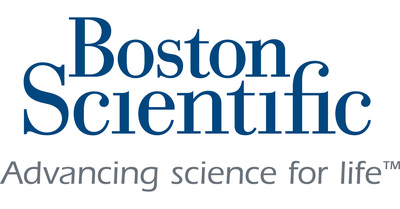MODULAR ATP Study of the mCRM™ System Meets Primary Safety and Efficacy Endpoints
Rhea-AI Summary
Boston Scientific announced positive six-month results from the MODULAR ATP study of the mCRM System, which integrates the EMBLEM S-ICD and EMPOWER LP. The study met all safety and efficacy endpoints, showing a 97.5% major complication-free rate and a 98.8% communication success rate between devices. The ATP success rate was 61.3%, with no patients requesting therapy deactivation. The EMPOWER LP demonstrated stable device fixation. Findings were presented at Heart Rhythm 2024 and published in The New England Journal of Medicine. The APPRAISE ATP trial also supported the modular therapy approach, showing a small reduction in first all-cause shocks over five years in a large patient group. FDA approval is anticipated in 2025.
Positive
- MODULAR ATP study met all safety and efficacy endpoints.
- Major complication-free rate of 97.5% for EMPOWER LP.
- Communication success rate of 98.8% between EMBLEM S-ICD and EMPOWER LP.
- ATP success rate of 61.3% with no patient therapy deactivations due to discomfort.
- Pacing capture thresholds met in 97.4% of patients.
- Positive clinical performance suggests a potential upgrade pathway for patients needing ATP or pacing.
- Data indicates physicians can tailor therapy to patient needs, reducing the risks of more invasive procedures.
- FDA approval of the mCRM System anticipated in 2025.
Negative
- APPRAISE ATP trial showed only a small absolute reduction in first all-cause shocks (1% per year).
- Shock burden was not significantly different between trial arms.
- The vast majority of patients in the ATP-plus-shock arm did not require ATP therapy.
- EMPOWER LP is still an investigational device, not available for sale or in the European Economic Area.
Insights
The findings from the MODULAR ATP trial of Boston Scientific's mCRM System are particularly relevant for the field of cardiac rhythm management. The study highlights a 97.5% major complication-free rate following implantation of the EMPOWER Leadless Pacemaker and a 98.8% communication success rate between the EMBLEM Subcutaneous Implantable Defibrillator and the pacemaker. These high success rates are indicative of well-engineered and effective devices, reducing the risks associated with traditional pacemakers that require leads in the heart. The leadless technology provides a significant advancement in patient safety and comfort, addressing common complications like infection and lead displacement seen with traditional systems.
However, while the 61.3% ATP success rate is promising, it also suggests there is room for improvement in therapy effectiveness. This rate means that nearly 4 out of 10 patients may not fully benefit from ATP therapy, indicating that further refinements in the technology or patient selection processes might be necessary. Additionally, the lack of patient requests for deactivation due to discomfort is noteworthy, as it indicates the therapy is well-tolerated.
In the broader context, the APPRAISE ATP trial results show only a 1% per year reduction in all-cause shocks for ATP therapy versus shock-only therapy, which suggests that while ATP can reduce shock frequency, the overall reduction is modest. Therefore, the mCRM System's ability to provide ATP without traditional leads could be particularly advantageous, offering a less invasive option for those who could benefit from ATP albeit a small patient population.
The anticipated FDA approval could mark significant progress in this field, potentially shifting the standard of care towards more modular and less invasive systems. For retail investors, these developments signal a strong innovation pipeline and potential market leadership in cardiac rhythm management technologies.
Boston Scientific's latest clinical trial results provide a solid foundation for evaluating the company's future financial prospects. The positive outcomes from the MODULAR ATP trial, with high safety and communication success rates, position the mCRM System as a strong candidate for FDA approval in 2025. This could translate into significant market opportunities, given the growing demand for advanced cardiac rhythm management solutions.
The company's ability to innovate with the development of the leadless pacemaker and subcutaneous defibrillator system indicates a strategic focus on addressing unmet clinical needs, which is likely to drive market penetration. It's important to note the potential for this system to differentiate Boston Scientific in a competitive market, potentially increasing its market share against other key players like Medtronic and Abbott Laboratories.
From a financial perspective, the high complication-free rate and successful wireless communication indicate reliability and reduced long-term costs associated with device-related complications. This could enhance the overall value proposition of the mCRM System to both healthcare providers and patients, potentially leading to higher adoption rates.
For investors, the pivotal trial results and the company's robust pipeline could signal future revenue growth and an enhanced competitive position. However, the modest reduction in shock burden observed in the APPRAISE ATP trial might temper some expectations regarding the overall impact on clinical outcomes.
Overall, the company's continued innovation and focus on patient safety and comfort demonstrate a strategic alignment with current market needs, which could be a positive indicator for long-term financial performance.
The results from the MODULAR ATP and APPRAISE ATP trials have significant implications for the cardiac rhythm management market. The mCRM System's innovative approach, combining a leadless pacemaker with a subcutaneous defibrillator, addresses longstanding issues related to lead-based systems, such as lead breakage and infection risks. This technological advancement could disrupt the existing market dynamics, offering a compelling alternative to traditional pacemaker and defibrillator systems.
The high communication success rate and low complication rates are likely to resonate with clinicians and patients alike, providing a strong value proposition. The ability of the mCRM System to wirelessly coordinate ATP therapy and bradycardia pacing without the need for invasive leads aligns with the industry's move towards minimally invasive solutions.
The APPRAISE ATP trial, while showing a small absolute reduction in all-cause shocks, highlights the importance of tailored therapeutic approaches. The data suggest that a modular system like the mCRM can provide targeted therapy for those most likely to benefit, potentially reducing the overall burden of invasive procedures and enhancing patient quality of life.
For retail investors, Boston Scientific's advancements in this area highlight the company's commitment to innovation and patient-centric solutions. As the market continues to evolve, the mCRM System's potential FDA approval and subsequent market introduction could position Boston Scientific as a leader in cardiac rhythm management technologies, offering growth opportunities in a competitive landscape.
Additional data from APPRAISE ATP trial reinforce modular therapy approach with EMBLEM™ Subcutaneous Implantable Defibrillator and EMPOWER™ Leadless Pacemaker
In addition to evaluating the safety and performance of the EMPOWER LP as a standalone pacemaker, the trial evaluated the ability of the EMBLEM S-ICD System to successfully communicate a wireless request to the LP to deliver ATP therapy. Findings from the trial met all pre-specified six-month safety and effectiveness endpoints, and demonstrated:
- A major complication-free rate of
97.5% after implantation of the EMPOWER LP.1 - A communication success rate of
98.8% from the EMBLEM S-ICD System to the EMPOWER LP.2 - An ATP success rate of
61.3% ,3 and no patient requests for deactivation of ATP or bradycardia pacing due to pain or discomfort. - Pacing capture thresholds, which indicate stable device fixation within the heart, of ≤ 2.0 V at 0.4 ms in
97.4% of patients.
"We saw excellent overall clinical performance of the mCRM System in this study, including a high rate of communication success from the S-ICD to the leadless pacemaker, and a low rate of major leadless pacemaker complications," said Prof. Reinoud Knops, M.D., Ph.D., Department of Cardiology and Electrophysiology, Amsterdam UMC,
Also presented at Heart Rhythm 2024 were results from the APPRAISE ATP clinical trial – a prospective, randomized, multicenter study evaluating ATP as a primary strategy for terminating ventricular tachycardias in primary prevention (PP) patients (i.e., those without a history of spontaneous sustained ventricular arrhythmias). The trial enrolled 2,626 PP patients indicated to receive an ICD at 134 centers globally and is the largest head-to-head trial of ATP in this patient group. In the study, patients were randomized 1:1 to standard transvenous-ICD therapy – ATP plus an ICD-delivered shock to terminate a ventricular tachycardia – versus shock only. Across five years of follow up, data demonstrated a statistically significant, but small absolute first all-cause shock reduction in only
"Together, data from the MODULAR ATP and APPRAISE ATP trials reinforce the promise of the groundbreaking mCRM System, illustrating a clear path forward for physicians to offer therapies that prevent sudden cardiac death and deliver ATP for the small number of patients who benefit from it," said Kenneth Stein, M.D., senior vice president and global chief medical officer, Boston Scientific. "Instead of subjecting all patients to the risks of more invasive approaches, such as placing leads in the heart or tunneling them under the sternum to provide therapies they might not require, these data indicate physicians may have the opportunity to tailor therapy to the patient's individual needs and health."
The company anticipates
*The EMPOWER LP is an investigational device and limited by
**Dr. Reinoud Knops is a paid consultant of Boston Scientific Corporation. He has not been compensated in connection with this press release.
About Boston Scientific
Boston Scientific transforms lives through innovative medical technologies that improve the health of patients around the world. As a global medical technology leader for more than 40 years, we advance science for life by providing a broad range of high-performance solutions that address unmet patient needs and reduce the cost of healthcare. Our portfolio of devices and therapies helps physicians diagnose and treat complex cardiovascular, respiratory, digestive, oncological, neurological and urological diseases and conditions. Learn more at www.bostonscientific.com and connect on LinkedIn and X, formerly Twitter.
Cautionary Statement Regarding Forward-Looking Statements
This press release contains forward-looking statements within the meaning of Section 27A of the Securities Act of 1933 and Section 21E of the Securities Exchange Act of 1934. Forward-looking statements may be identified by words like "anticipate," "expect," "project," "believe," "plan," "estimate," "intend" and similar words. These forward-looking statements are based on our beliefs, assumptions and estimates using information available to us at the time and are not intended to be guarantees of future events or performance. These forward-looking statements include, among other things, statements regarding our business plans and product performance and impact, and new and anticipated product approvals and launches. If our underlying assumptions turn out to be incorrect, or if certain risks or uncertainties materialize, actual results could vary materially from the expectations and projections expressed or implied by our forward-looking statements. These factors, in some cases, have affected and in the future (together with other factors) could affect our ability to implement our business strategy and may cause actual results to differ materially from those contemplated by the statements expressed in this press release. As a result, readers are cautioned not to place undue reliance on any of our forward-looking statements.
Factors that may cause such differences include, among other things: future economic, competitive, reimbursement and regulatory conditions; manufacturing, distribution and supply chain disruptions and cost increases; variations in outcomes of ongoing and future clinical trials and market studies; new product introductions; demographic trends; intellectual property; litigation; financial market conditions; and future business decisions made by us and our competitors. All of these factors are difficult or impossible to predict accurately and many of them are beyond our control. For a further list and description of these and other important risks and uncertainties that may affect our future operations, see Part I, Item 1A – Risk Factors in our most recent Annual Report on Form 10-K filed with the Securities and Exchange Commission, which we may update in Part II, Item 1A – Risk Factors in Quarterly Reports on Form 10-Q we have filed or will file hereafter. We disclaim any intention or obligation to publicly update or revise any forward-looking statements to reflect any change in our expectations or in events, conditions or circumstances on which those expectations may be based, or that may affect the likelihood that actual results will differ from those contained in the forward-looking statements, except as required by law. This cautionary statement is applicable to all forward-looking statements contained in this document.
CONTACTS:
Steve Bailey
Media Relations
(651) 582-4343 (office)
Steve.Bailey@bsci.com
Jon Monson
Investor Relations
(508) 683-5450
BSXInvestorRelations@bsci.com
1 Major complications defined as any complication related to the EMPOWER LP or its implantation procedure that results in system revision, permanent loss of LP function, hospitalization, or death.
2 During communication tests, the S-ICD attempted to command the LP to deliver pacing at a rate approximately 10 beats per minute faster than the patient's intrinsic rhythm.
3 ATP success rate defined as terminating ventricular arrhythmia.
![]() View original content to download multimedia:https://www.prnewswire.com/news-releases/modular-atp-study-of-the-mcrm-system-meets-primary-safety-and-efficacy-endpoints-302149475.html
View original content to download multimedia:https://www.prnewswire.com/news-releases/modular-atp-study-of-the-mcrm-system-meets-primary-safety-and-efficacy-endpoints-302149475.html
SOURCE Boston Scientific Corporation









